
Alphabetical Menu
Chronological Menu
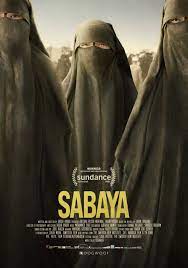
In Sabaya, director Hogir Hirori bravely follows volunteers from the Yazidi Home Center in Syria as they travel to the Al-Hol refugee camp to rescue Yadizi women and girls who are held there as sex slaves a terrorist group known as Daesh. The sex slaves are called "sabaya" This gripping documentary is concurrently thriller and horror film because it shows intense footage from the rescue missions. One of the volunteers, Mahmud, risks his life to try to save as many sex slaves as he can while he goes from tent to tent at the Al-Hol refugee camp. Hirori doesn't include talking heads to provide more info about Mahmud, so the doc remains lean, taut and focused from the very beginning without any padding. The footage speaks for itself and feels even more immersive than any Hollywood film because you know that it's real. Sabaya just as powerful and thrilling as the documentary The Abolitionists, although it's not a thorough because The Abolitionists goes a step further by exploring the aftermath of the sex slaves' rescue and how the girls deal with their trauma as they struggle to find normalcy. At a running time of 90 minutes, Sabaya is ultimately an eye-opening, terrifying and suspenseful documentary. It opens at Film Forum via MTV Documentary Films. The Evening Hour  Cole (Philip Ettinger) lives in a small Appalachian town, works as an aide at a nursing home, and sells prescription drugs that he steals from his patients. Two people from his past show up out-of-the-blue: his estranged mother, Ruby (Lili Taylor), and his old friend, Terry (Cosmo Jarvis) who's a bad influence on him. The Evening Hour remains engrossing because of the sensitive, nuanced and understated screenplay by Elizabeth Palmore, based on the novel by Carter Sickels. Palmore sees and treats the characters like human beings which makes them all the more interesting. Cole has likable and unlikable qualities, but the film never judges him; the audience is just there to experience him and to come to their own conclusions about him. It's a slice-of-life glimpse into the life of a troubled young man who has yet to overcome the traumas from his past and to avoid the pitfalls of a toxic relationship with his friend, Terry. No good friend would cause any kind of harm to his friend, so Terry is far from a good friend. The fact that Cole doesn't realize that right away says a lot about who he is as well how he was raised---or not raised for that matter. He's trying his best, though, given his circumstances, which is all that he could do, and he seems like a decent human being at his very core. You can learn a lot about where Cole got his trauma and issues from by observing his relationship with his mother who's far from a good mother, especially for abandoning her very own son. Cole probably had to parent himself after his mother abandoned him which is no easy task. Palmore wisely avoids the use of flashbacks to tell the story and does a great job of incorporating just the right amount of exposition without distracting from the narrative momentum. There are no cartoonish villains. Even Terry isn't a cookie-cutter villain despite that he's a bad influence and bad friend. Cole's mother could have easily been written as a villain too, but she's not. This isn't the kind of film where you can hear the wheels of the screenplay turning as the film progresses, so that's a testament to the natural dialogue. Every scene rings true and lacks contrivance which makes The Evening Hour an un-Hollywood film. It's also worth mentioning that director Braden King makes great use of quiet moments which speak volumes louder than words. He trusts the audience's patience which allows them to be more easily absorbed by the story and its very human characters. That's a rare feat these days. Beyond the well-written screenplay, the strong performances help to further ground The Evening Hour in realism and, most importantly, humanism, a truly special effect. Philip Ettinger gives a raw and tender performance that finds the emotional truth in his role as Cole. He brings warmth and charisma to the film. The always-reliable Lili Taylor also impresses with a convincingly moving performance as Cole's mother. Each actor and actress see and treat their characters as human beings which they show through their performance in their complex, layered roles. It's a testament to Taylor's skills as an actress that she can tackle a role as the mother in The Evening Hour and the mother in Paper Spiders so effectively. Both are very different characters because they're flawed in different ways, but they're both profoundly human. When it comes to the use of the landscape, the film also excels while making the most out of the scenic shots without hitting you over the head with how majestic the scenery looks---this isn't a Terrence Malick film, after all, nor does it need to be. It requires patience because of its leisurely pace, but patience is often rewarding which is the case with The Evening Hour. At a running time of 1 hour and 54 minutes, The Evening Hour is genuinely moving, captivating and nuanced with strong performances.  The Green Knight 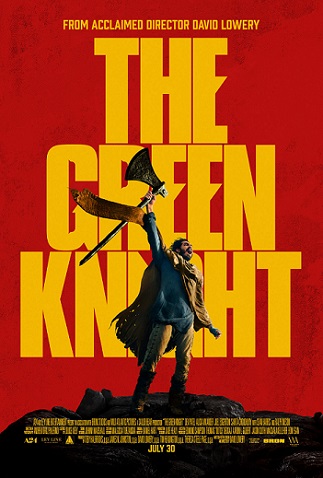 Sir Gawain (Dev Patel), the nephew of King Arthur (Sean Harris) and Queen Guinevere (Kate Dickie), attends a Christmas banquet with the King and Queen. The Green Knight (Ralph Ineson) shows up to the banquet and offers a challenge to any of King Arthur's knights: if one of them injures him in a fight, he will injure the knight in the same way one year later. Gawain accepts the challenge and behinds the Green Knight, so, a year later, he has to travel a long distance to the Green Chapel to face the Green Knight. Based on the poem "Sir Gawain and the Green Knight," The Green Knight is a refreshingly unconventional approach to telling a medieval fantasy tale. The screenplay by writer/director David Lowery sets up the basic plot within the first ten minutes before Gawain embarks on his journey. This isn't the kind of movie that has a heavy or complicated plot or lots of exposition. It's more of a slow-burning mood piece that focuses on Gawain's spiritual journey as he gradually learns to accept his fate that awaits him when he faces the Green Knight at the Green Chapel. He has a girlfriend, Essel (Alicia Vikander), whom he loves deeply. Throughout his journey, he crosses paths with a Lord (Joel Edgerton), a scavenger (Barry Keoghan), some giants and a little fox who tags along with him. The fox provides much-needed comic relief every now and then which helps to lighten the tone a little. If you're looking for palpable thrills and suspense, you'll be disappointed because there's very little action. The suspense is there, but it's muted and understated. The Green Knight can best be described as a bold, experimental character study of Gawain that's just as imaginative and exhilarating as Pan's Labyrinth. Kudos to Lowery for trusting the audience's patience, imagination and intelligence. He's a filmmaker who treats the audience like human beings without pandering to the lowest common denominator. Dev Patel gives the best performance of his career as Gawain. It's truly a transformative performance. He's charismatic, but most importantly, he successfully tackles the emotional complexities of his role as Gawain. There's nothing cartoonish or one-dimensional about Gawain; he's a fully-fleshed human being with a heart, mind and soul. On an aesthetic level, The Green Knight is a triumph. Every shot feels poetic with the set design, landscape, lighting, camera angles and colors. The camera becomes a character in and of itself and reflects the film's atmosphere effectively. The soundtrack is also worth mentioning and adds yet another layer of depth in a way that doesn't come across as heavy-handed. There's some CGI which looks impressive, but it's not excessive or distracting. It wouldn't be surprising if The Green Knight were to be studied in film school or if it will become a cult classic like Tarkovsky's The Sacrifice or Stalker. At a time of 2 hours and 5 minutes, The Green Knight is a breathtaking, cerebral and exhilarating experience brimming with visual poetry. Like all truly great films, it transcends words. Please be sure to stand through the end credits for a brief stinger. 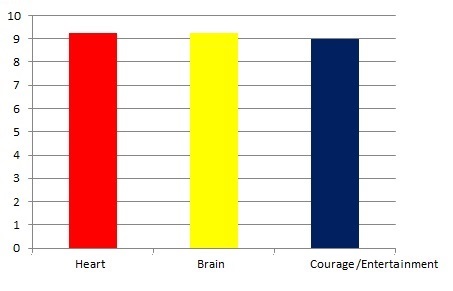 Jungle Cruise 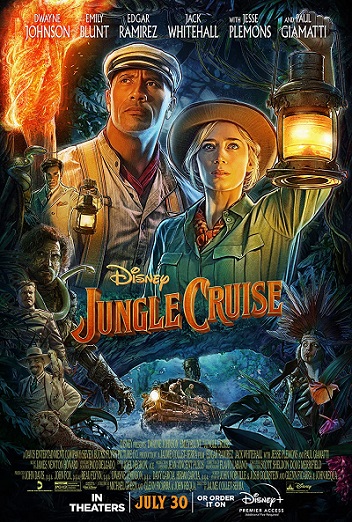 In the early 20th Century, Dr. Lily Houghton (Emily Blunt), a scientist, travels to the jungle of the Amazon in search of Tears of the Moon, a tree with magical healing powers. She hires Frank Wolff (Dwayne Johnson), a skipper, to guide her and her brother, MacGregor (Jack Whitehall), through the river on his boat. Meanwhile, Prince Joachim (Jesse Plemons) wants to find the Tears of the Moon for nefarious reasons. The screenplay Michael Green, Glenn Ficarra and John Requa, doesn't offer anything that's original while paying homage to many of the films that it heavily borrows from. The plot along with the action scenes that inevitably come with it at times seems like a throwaway. They're just there as filler for the banter between Lily and Frank during their boat ride. Of course, since there's a boat on a river, there has to be a scene where the boat rapidly approaches a waterfall. Will the skipper avoid the waterfall and save Lily and MacGregor's life? That's a rhetorical question if you've seen even one action adventure. None of the characters are particularly memorable or well-fleshed out, but that's forgivable. Even the villains are forgettable. What matters is that Lily and Frank exchange witty remarks with one another which makes for a lively and occasionally even laugh-out-loud funny experience. Some of the humor is slapstick. As long as you don't compare it to The African Queen, Jungle Cruise is an amusing action adventure that's mediocre and harmless without taking itself too seriously, except for one scene where the Frank recalls his traumatic past that feels tonaly uneven when juxtaposed with the rest of the film. Also, Jungle Cruise tries too hard to please the audience and to be quotable with its many zingers. Emily Blunt and Dwayne Johnson bring plenty of charisma and charm. Most importantly, though, they have great chemistry together. They're no Humphrey Bogart and Katherine Hepburn, but they're still engaging to watch as they bicker and banter while their characters are clearly with each other. Jack Whitehall is terrific as Lily's brother and has great comedic timing. All of the actors and actresses on screen seem to be having a great time. Paul Giamatti briefly shows up with ugly looking teeth and a convincing Italian accent, although his role is very cartoonish and over-the-top. The same can be said for Jesse Plemmons who's over-the-top in a somewhat campy way. Perhaps if Jungle Cruise embraced and upped its campiness a little more, it would've risen above mediocrity. Does it really need to be 2 hours and 7 minutes long? No, but at least the pace moves quickly and when the film begins to drag around the 90-minute mark, there's at least some pretty jungle scenery to keep your eyes entertained. Jungle Cruise, based on the Disneyland amusement park ride, is ultimately a pleasant and fun diversion for the whole family that remains afloat with its wit and charm. 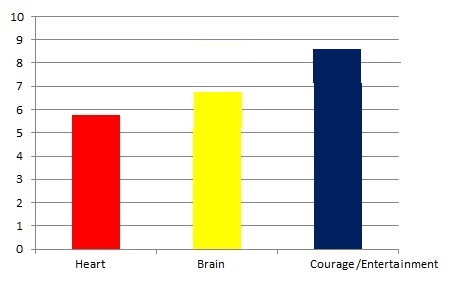 Never Gonna Snow Again 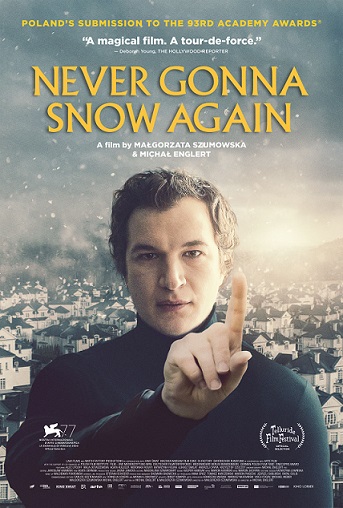 Zhenia (Alec Utgoff), a mysterious masseur who has healing powers, arrives at a Polish town with a bed in tow to massage the wealthy townspeople. One by one, he massages them, hypnotises them and uses his magic touch to heal them. Never Gonna Snow Again is hard to describe by its plot alone because it's more than the sum of its parts. On the surface, it's a simple story about a man who heals people who are suffering, but there's a lot more going on beneath the surface. Co-writers/directors Malgorzata Szumowska and Michal Englert don't provide a lot of backstory to Zhenia except for a few bits and pieces from his past, like the fact that he survived Chernobyl and that he lost his beloved mother in Chernobyl as ash fell from the sky like snow. There's a subtle melancholic tone to the film which suggests that there's a deep sadness lurking under the surface. The screenplay isn't very unflinching when it comes to depicting that sadness, but it's there. The mystery being Zhenia's true identity is what makes Never Gonna Snow Again intriguing. The filmmakers grasp that less is more by not revealing too much and leaving a lot to the audience's imagination. At times, to be fair, it feels repetitive and it's hard to connect to any of the characters emotionally because they remain at a cold distance from the audience, especially when it comes to the character of Zhenia. If you're a patient audience member who likes understated films, you'll be able to appreciate Never Gonna Snow Again as an elliptical, unconventional blend of sci-fi and drama with an undercurrent of melancholy. Alex Utgoff gives a charismatic performance and holds your attention even during the silent moments of which there are many. The pace moves slowly, sometimes too slowly, but at least there's exquisite cinematography to keep you from getting very bored. The images speak louder than words in Never Gonna Snow Again, and it would be fair to say that they're poetic. Also, the filmmakers use the theme song from Eyes Wide Shut in the beginning of the film which is quite fitting. Perhaps they were trying to use that as a nod to Eyes Wide Shut which is also a mysterious film that asks questions and provides few answers to the audience. Both films are cold, hard to categorize in one particular genre, and use symbolism in a thought-provoking way. At a running time of 1 hour and 53 minutes, Never Gonna Snow Again is well-shot, enigmatic and lyrical with an undercurrent of melancholy, but it's emotionally cold and occasionally tedious. 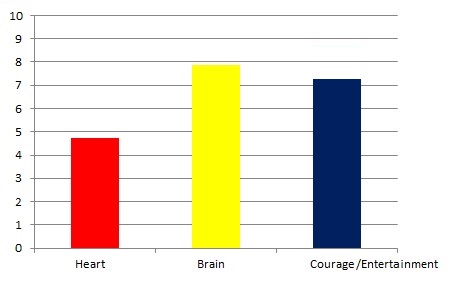 Nine Days  Will (Winston Duke) interviews human souls in an isolated house in the middle of a desert to decide which of them will be born on Earth. The unborn souls include Mike (David Rysdahl), Emma (Zazie Beetz), Kane (Bill Skarsgård), Anne (Perry Smith) and Maria (Arianna Ortiz). His assistant, Kyo (Benedict Wong), brings the souls to him. They each have nine days to complete the test that will determine their fate. The screenplay by writer/director Edson Oda takes a very provocative concept and turns it into a poignant, haunting profoundly human story. Oda takes his time to present the audience with exposition to explain the film's sci-fi premise without bombarding them with information. The first images are just the videos that Will watches on TV screens. Who are they people that he's watching? Why is he watching them? Who is Will? Those questions get answered eventually, but it takes some patience. Oda knows how to introduce characters without spoon-feeding the audience. He eschews voice-over narration which would've dumbed down the film, so he trusts the audience's intelligence and, most importantly, their emotions. This isn't the kind of sci-fi movie that has a twisty, convoluted plot with special effects. It's far more grounded in humanism than some dramas that aren't science fiction. Each of the characters feel like human beings and they're each worth rooting for despite their flaws. Will asks them a challenging question which won't be spoiled here, but the answers that each of them are different and reveals a lot about each of the characters. Will himself has a very interesting backstory that's gradually revealed until the very powerful, cathartic ending. The dynamics of the relationship with Emma in particular makes the film increasingly compelling. There's a well-written scene that provides some comic relief when Will gathers with Kyo and some of the human souls for a dinner outside as they discuss some stories from their past. Oda also does a great job of showing the passage of time without any text that state "2nd day" or "4 days left"; he incorporates that into the dialogue instead, so it's important for the audience to pay attention because every details matters in Nine Days. Winstone Duke gives a breakthrough performance that's mesmerizing on many levels. Will has an inner life, and it's remarkable how Duke manages to display that even without words. His monologue, though, at the very end is one that will be remembered and rewatched because of how much emotion Duke put into it. It's just as moving as the cathartic ending of Departures. The final words that he says after a long pause after the monologue are simple, yet very profound. There are quiet moments throughout the film which are just as powerful if not more than the scenes with dialogue. Oda clearly grasps the power of images. For example, there's a slow-paced scene when Will walks outside at night and another when one of the human souls walks in the desert toward Will's office. Oda takes the mundane and makes it profound which is no easy feat. The music composed by Antonio Pinto should also be commended because it compliments the mood very effectively without being obtrusive. His filmmaking style is reminiscent of Ozu and Kore-eda, especially Kore-eda's After Life which would make for a great double feature with Nine Days. At a running time of 2 hours and 4 minutes, which feels more like 90 minutes, Nine Days is one of the best films of the year. Winston Duke deserves an Oscar. 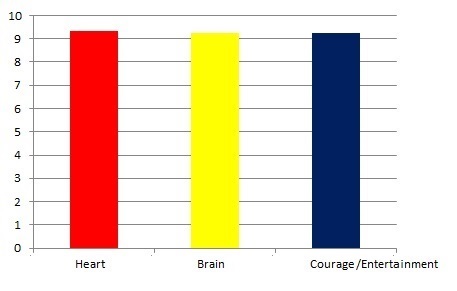 Ride the Eagle 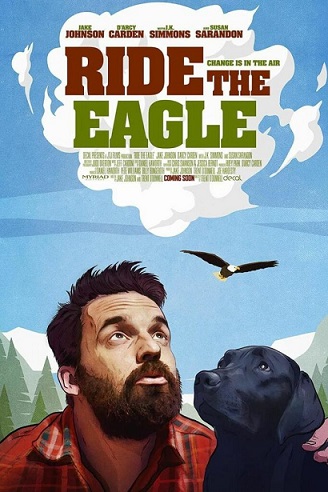 After his estranged mother, Honey (Susan Sarandon), dies, Leif (Jake Johnson) learns that she left him a conditional inheritance. He will inherit her cabin in the woods only if he completes a specific set of tasks to teach him valuable life lessons. At the cabin, he listens to his mother's instructions she recorded on video and obeys one of her orders by calling his ex-girlfriend, Audrey (D’Arcy Carden), to reconnect with her. He also bumps into his mother's neighbor, Carl (J.K. Simmons), who used to be her lover and didn't even know that she died. There's nothing inherently wrong with a movie about a dysfunctional mother/son relationship with inspiration lessons about life and growing up. Harold & Maude managed to pull it off with wit, warmth, depth and a dark sense of humor. Leif and Harold both have a lot of growing up to do and suffer from a toxic relationship with their controlling mothers, but their similarities end there. Writer/director Trent O'Donnell and co-writer Jake Johnson leave too many questions unanswered which would've been fine if they weren't so distracting. What did Leif's mother do to him that was abusive and caused him to become estranged from her? It's not very clear and, when some of it is mentioned, it's too brief and incomplete. It's as though the filmmakers were afraid to go to darker territory. Imagine a more lighthearted version of Ordinary People without the therapist and you'll get an idea of what Ride the Eagle is like. Ordinary People tackles the mother/son relationship between Beth and Conrad with much more complexity and insight than this film shows between Leif and Honey. If Leif doesn't complete one of the tasks that his mother gives him, then who would know that he didn't complete it? Who's monitoring him to make sure that he completes it? Why are there no estate lawyers involved? Why would Audrey want to reunite with a man who still has unresolved issues with his mother and who hasn't become emotionally mature enough to be able to learn his life lessons on his own without his mother's instructions? Audrey seems like she's too naive, and her newly-kindled relationship with Lief comes across more as a fairy tale than as reality. How does the audience know that Lief's mother has truly changed and isn't just trying to control her son beyond the grave? Also, Leif goes through each task very quickly as though it were a laundry list, so it's unclear if he has truly changed by the time the end credits roll. A lot of those lessons are huge concepts that usually take years to learn, not days or weeks. The character of Carl seems to be just there because the screenplay requires him to be; he, too, seems underwritten, and he's a distracting and even annoying subplot that just makes Ride the Eagle even more clunky. The performance of Jake Johnson is decent, but the screenplay doesn't breathe enough life into him or any of the characters. There aren't any scenes that feel genuinely moving, although the instructional video that Leif's mom leaves behind does add a modicum of poignancy, but not nearly enough. Although it's refreshing that Ride the Eagle is a cabin in the woods story that doesn't veer toward horror, it would've been great if it at least veered toward a more serious and organic drama rather than just going through the motions like Leif does with his mother's list of tasks. At a running time of 1 hour and 28 minutes, Ride the Eagle is too undercooked, contrived and shallow to make an emotional impact or to be inspirational. You'll have to wait until the third act to find out the meaning of the film's title. 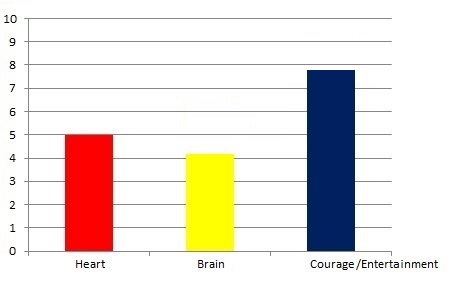 Stillwater 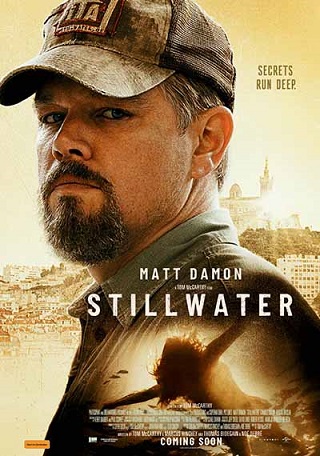
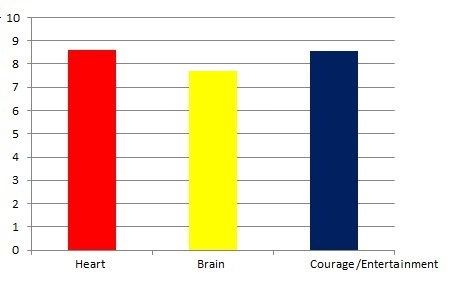 Twist 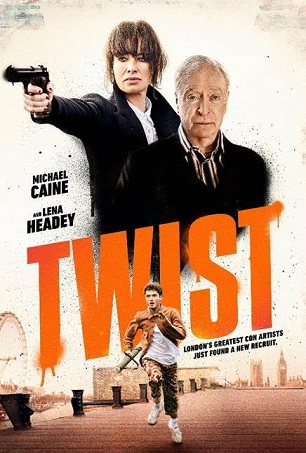
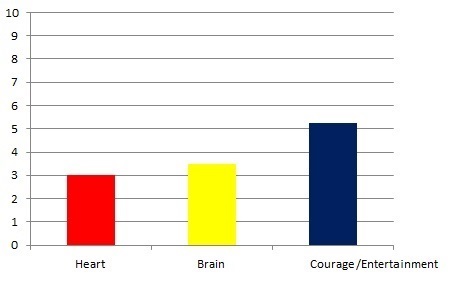 |